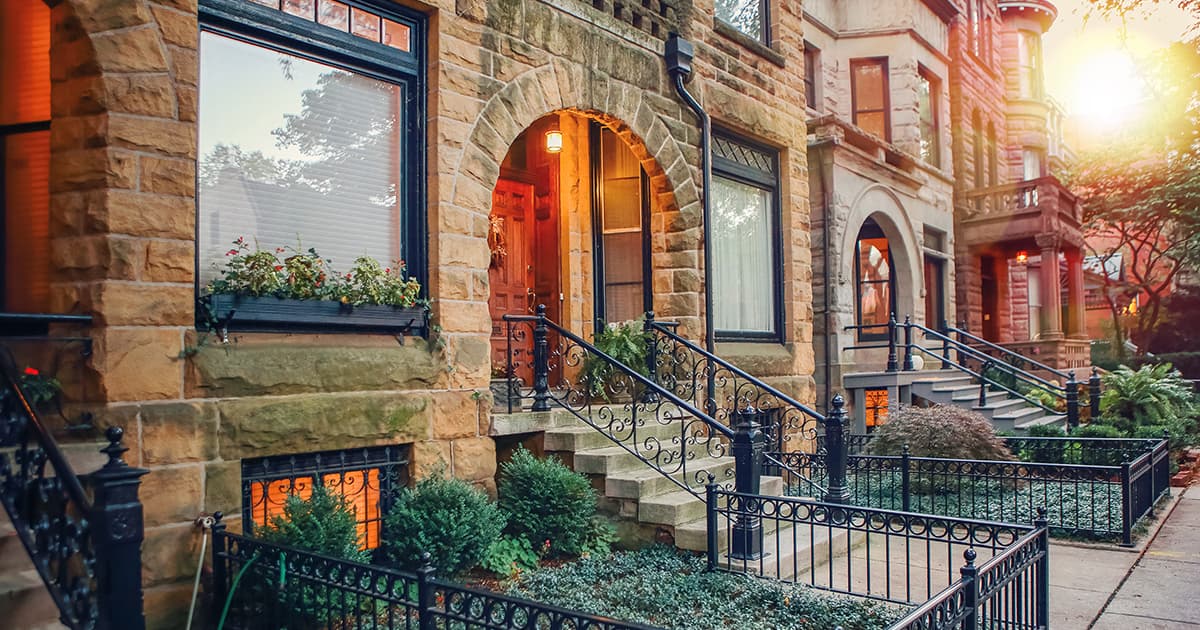Does It Cost More to Insure an Old Home or A New Home?

In many cases, home insurance premiums for new homes can be lower compared to older homes.
Newer homes often have modern construction features and materials that are less prone to damage or failure, reducing the risk for insurers. A new home can also be built to current building codes, which can further minimize risks.
What other factors influence home insurance?
There are other factors beyond age that influence insurance premiums, such as location, size, and specific features of the home. While new homes may generally have lower insurance costs, it's important to consider all relevant factors and obtain quotes from insurance providers to determine the actual cost.
Older homes may have higher replacement costs for unique architectural features or materials, which could impact insurance rates.
What happens with my home insurance rate if I have renovated my home?
If your home has recently had upgrades such as a new roof, electrical system, water tank, and furnace, it could potentially lead to lower insurance premiums.
Insurance companies often consider these upgrades as reducing the risk of damage or loss, resulting in a lower likelihood of insurance claims.
Newer roof materials are less susceptible to damage from weather events, while updated electrical systems, water tanks, and furnaces are less prone to causing fires or water damage due to malfunction.
As a result, insurance companies may offer discounts or lower premiums for homes with these improvements in place.
It's always a good idea to inform your insurance provider about any upgrades to ensure that your policy accurately reflects the features of your home and to potentially benefit from any available discounts.
How can I lower the cost of my home insurance?
There are several strategies you can consider to lower the cost of your home insurance:
Shop around: Reach out to a home insurance expert at Western Financial Group and they will do the shopping for you and provide you with options that will fit your needs.
Switch insurance company: Find a better rate with a different Insurance Company. Save up to 30% on Home Insurance when you switch with Western Financial Group.
Increase deductibles: Opting for a higher deductible can lower your premiums but be sure you can afford the out-of-pocket expense if you need to file a claim.
Bundle policies: Many insurance companies offer discounts if you bundle your home insurance with other policies like auto or umbrella insurance.
Improve home security: Installing security systems, smoke detectors, deadbolts, and other safety features can reduce the risk of theft or damage, leading to lower premiums.
Maintain good credit: Insurance companies often use credit scores as a factor in determining premiums, so maintaining a good credit score can help lower your rates.
Avoid filing small claims: Paying for minor repairs out-of-pocket instead of filing a claim can help prevent premium increases.
Update your home: Upgrading outdated systems and making improvements like installing a new roof or upgrading electrical and plumbing systems can lower premiums.
Ask about discounts: Inquire with your insurance provider about available discounts for factors like being a non-smoker, having a home in a gated community, or being part of a homeowner's association.
Review and adjust coverage: Regularly review your policy to ensure you're not overpaying for coverage you don't need and consider adjusting coverage limits based on changes in your home's value or your personal circumstances.
Stay with the same insurer: Some insurance companies offer loyalty discounts for customers who remain with them for an extended period.
By using these strategies, you can potentially reduce the cost of your home insurance while still maintaining adequate coverage.
Learn more on how your credit score affects your home insurance.



